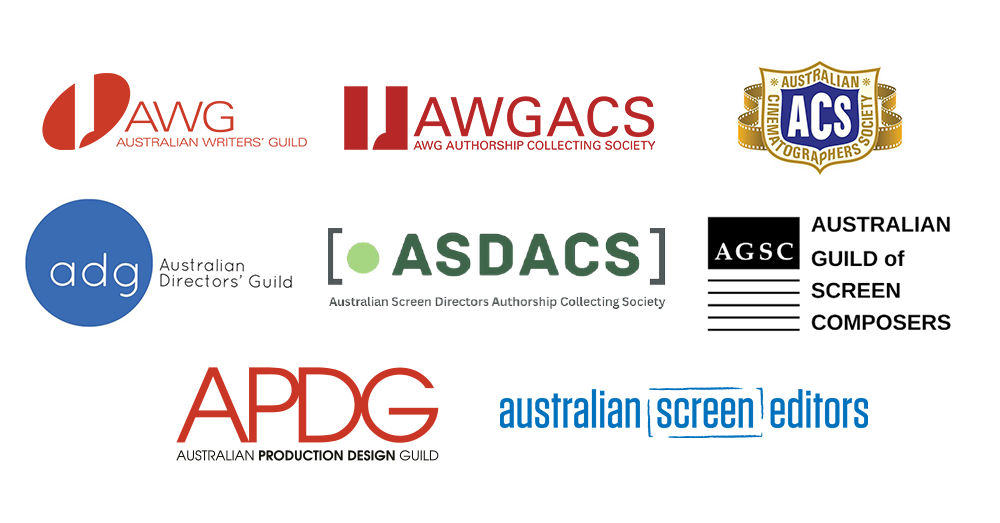
The theft of thousands of creative workers’ intellectual property by AI companies is unacceptable, say creatives of the Australian screen industry, urging the Government to come down hard on the ongoing and widespread use of stolen and uncompensated work by AI developers.
Responding to the Productivity Commission’s consultation on policy reform, the Australian Writers’ Guild (AWG), Australian Writers’ Guild Authorship Collecting Society (AWGACS), Australian Cinematographers Society (ACS), Australian Directors’ Guild (ADG), Australian Screen Directors Authorship Collection Society (ASDACS), Australian Guild of Screen Composers (AGSC), Australian Production Design Guild (APDG) and Australian Screen Editors (ASE) asserted their strong opposition to any suggestion that AI systems should be allowed to use copyrighted works without consent or remuneration being paid to the original creators of the works.
They are calling on the Government to address the infringement of creative workers’ copyright by:
- Ensuring that the creative workers whose work has been stolen are fairly remunerated
- Ensuring that the creative workers are aware that the infringement has taken place
- Requiring consent is given by creative workers before their work is used to ‘train’ AI datasets, with an appropriate compensation model and
- Implementing a compensatory and rectification process for infringements that have already taken place, including the removal of work from models.
AWG and AWGACS CEO, Claire Pullen said: ‘Australia has a sound copyright framework in place for how we address the theft of creative workers’ intellectual property. We’re not asking for unreasonable concessions, just that the Government ensure that our existing laws are applied to this blatant theft of work, now and into the future.’
‘Our creative industries are billion-dollar industries, and Australian audiences want more of what we make. It’s contrary to our economic and cultural interests to allow theft of our work by foreign companies, or exploitation of creative workers here.’
ASDACS Executive Director, Deb Jackson said: ‘A remuneration scheme is essential to maintaining the livelihoods of creators and authors to ensure they are fairly compensated for the exploitation of their work on AI platforms; without this there is a significant threat to Australian creative innovation and economic growth in the creative sectors’.
Since its inception, AWGACS, the secondary royalty collection society for Australian and New Zealand screenwriters and authors, has collected and distributed over $33 million to creative workers. ASDACS, the secondary royalty collection society for Australian and New Zealand screen directors, has collected and distributed $21 million. This income and taxation revenue is at risk if companies continue to deploy AI systems unchecked.
The submission also addresses concerns regarding the use of Automated Decision Making (ADM) and Large Language Models (LLMs) in the video games industry, including the significant risk of untruthful, defamatory or harmful content being shown to consumers.
‘Before we can begin to assess the impact of AI we have to settle the fundamental issue that it has been built on the back of stolen intellectual property. There can be no economic, cultural or scientific benefit to the nation until a process of transparency, consent and ongoing compensation is afforded to the creative workers who have made AI possible,’ said Pullen.
The AWG and AWGACS position is endorsed by the following industry guilds and collecting societies: Australian Cinematographers Society (ACS), Australian Directors’ Guild (ADG), Australian Screen Directors Authorship Collecting Society (ASDACS), Australian Guild of Screen Composers (AGSC), Australian Production Design Guild (APDG) and Australian Screen Editors (ASE), representing cinematographers, directors, screen and live performance designers, screen composers and screen editors.

